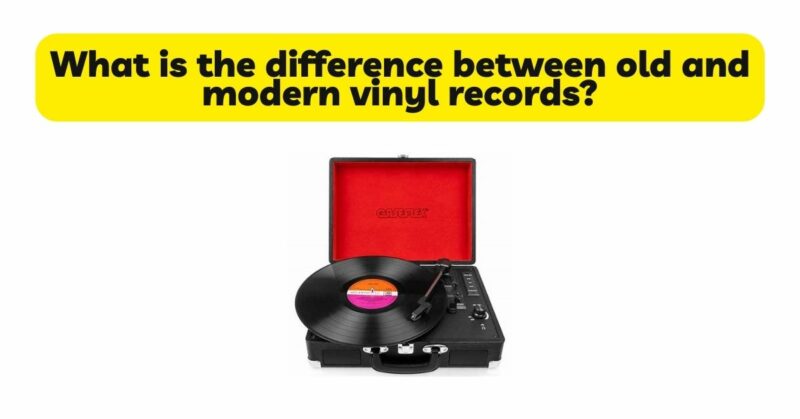Vinyl records have made a resurgence in popularity in recent years, with many music lovers enjoying the warm sound and tactile experience of listening to records. However, there is a debate about whether vinyl records actually have better sound quality than digital formats, such as CDs or streaming.
What is sound quality?
Sound quality is a subjective experience, and what sounds good to one person may not sound good to another. However, there are some objective factors that can contribute to sound quality, such as frequency response, dynamic range, and distortion.
Frequency response is the range of frequencies that a sound system can reproduce. A wider frequency response means that the sound system can reproduce a wider range of sounds, from low bass to high treble.
Dynamic range is the difference between the loudest and quietest sounds that a sound system can reproduce. A wider dynamic range means that the sound system can reproduce a wider range of volume levels, from soft whispers to loud explosions.
Distortion is any unwanted noise or distortion that is added to the sound. Distortion can be caused by a number of factors, such as poor quality components, incorrect settings, or environmental noise.
How do vinyl records compare to digital formats in terms of sound quality?
In terms of frequency response, vinyl records and digital formats are comparable. Both formats can reproduce a wide range of frequencies, from low bass to high treble. However, vinyl records may have a slight advantage in terms of dynamic range. This is because vinyl records are analog formats, while digital formats are digital formats. Analog formats are continuous waves, while digital formats are a series of discrete samples. This means that analog formats can reproduce a wider range of volume levels without introducing distortion.
In terms of distortion, vinyl records may have a slight disadvantage. This is because vinyl records are susceptible to surface noise, which can be caused by dust, dirt, and scratches. Digital formats are not susceptible to surface noise, so they are less likely to introduce distortion.
Overall, vinyl records and digital formats have similar sound quality. However, vinyl records may have a slight advantage in terms of dynamic range. Ultimately, the best way to decide which format sounds better is to listen to both and see what you prefer.
Here are some additional factors that can affect the sound quality of vinyl records:
- The quality of the record pressing. A well-pressed record will have better sound quality than a poorly pressed record.
- The quality of the turntable. A better turntable will produce better sound quality than a lower-quality turntable.
- The quality of the stylus. A better stylus will produce better sound quality than a lower-quality stylus.
- The environment in which the record is played. A record played in a quiet environment will sound better than a record played in a noisy environment.
If you are looking for the best possible sound quality, it is important to consider all of these factors. A well-pressed record played on a high-quality turntable with a good stylus in a quiet environment will produce the best sound quality. However, even a poorly pressed record played on a low-quality turntable can still sound enjoyable. Ultimately, the most important factor is that you enjoy the sound of the music.


